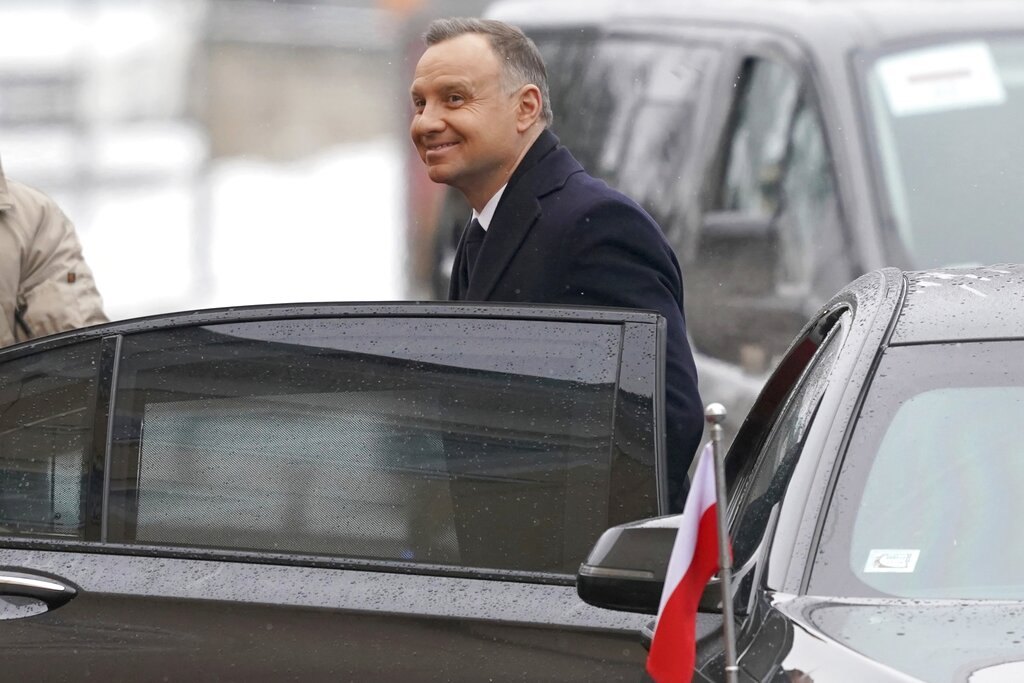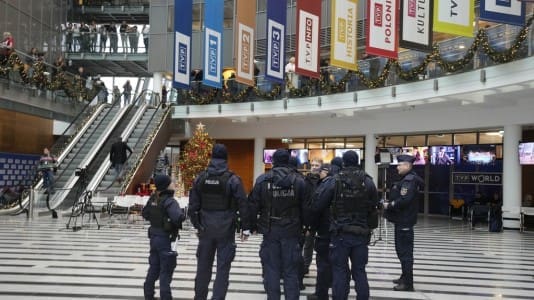According to emerging reports, the State Protection Service (SOP), tasked with the security of the president of Poland, played some role in the arrest of MPs Mariusz Kamiński and Maciej Wąsik at the Presidential Palace on Tuesday, undermining the trust in this institution.
The SOP law enforcement agents are tasked with protecting government buildings, including the Polish president’s residence and the majority of ministry buildings, with some exceptions, such as the Ministry of National Defense, which is guarded by soldiers, and the Ministry of Justice, which is protected by prison service officers.
The SOP also provides personal protection to those in the state entitled to it. In many ways, much in the way the U.S. Secret Service protects major politicians and some officials.
Established by a 2017 law (effective the following year), the SOP replaced its predecessor, the Government Protection Bureau (BOR), which had existed since 1956. Qualitatively, in terms of the service’s performance, which had many criticisms, this change brought no improvement. If anything, it seemed to worsen. Time and again, it has been shown that merely changing the name does not improve the functioning of an institution.
As one of the special services, the SOP was equipped by the previous authority with typical instruments for such formations, including the right to conduct operational control. The SOP service reports to the Minister of Internal Affairs.
However, the events of Tuesday have raised a problem that some may consider marginal, but which highlights the dramatic nature of the situation.
In a situation of acute conflict between the government and the president, a dilemma of loyalty arises. It can be assumed that SOP officers were ordered on Tuesday to inform their superiors of the president’s departure from the palace so that the police could intervene at the right moment. It was also the SOP that had to let the police in, as its officers guard all entrances to the head of state’s residence, including the back entrance from Karowa Street to the National Security Bureau.
While the president’s residence does not have any extraterritorial status and everything probably happened legally, anyone without deep prejudice can feel that something is amiss. Even if SOP officers received a completely legal order within the service hierarchy, it must have been obvious to them that in executing it, they were being disloyal to the head of state, the person they are meant to protect, on a human and ethical level.
This raises several issues.
Firstly, for such protection to work well, there must be trust between the protector and the protected. This trust has likely now been destroyed. Recalling the years 2007-2010, it seems that this problem did not exist between the officers of the BOR and President Lech Kaczyński. Perhaps this is simply a measure of how much Polish public life has degraded since then.
Secondly, given the extreme actions of the current authority, the president has the right not only to distrust SOP officers but also to have serious doubts about whether they will engage in future actions against him. I hope that the government will not consider it appropriate under any circumstances to use the SOP’s surveillance competencies around the president; however, after yesterday’s events, nothing can be assumed with certainty.
These points suggest that the President’s Chancellery should seriously consider changing the model of state head protection, perhaps in the next presidential term, as it is probably impossible now. A separate service should be established to protect only the president of Poland and his residences to avoid potential further loyalty and trust crises during cohabitation.
Finally, politicians may not fully realize the situation they have put people in who simply want to serve the Polish state, and I assume there are quite a few such people in the SOP. How should an officer feel when a superior orders them to pass on information and take actions effectively aimed at the person they are supposed to ensure feels safe and comfortable?
The conflict in Poland is destroying the sense of any community on many levels. It is destroying the state. This is one of the less noticeable dimensions of this destruction, yet it is also very important.





